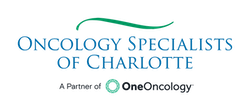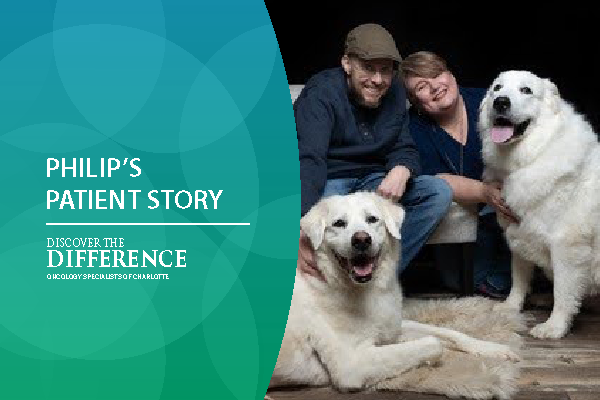In April 2017, Philip developed a persistent fever that lasted a week. Initially, he thought it was a sinus infection or perhaps a Crohn's flare-up when he started feeling nauseated and lost his appetite. Seeking medical help, he went to a local emergency clinic. Due to his high white blood cell count, he was transferred to a larger hospital. Despite numerous antibiotics and tests, his symptoms remained undiagnosed, prompting him to seek further treatment from his own GI doctor, Dr. Toussaint.
Dr. Toussaint conducted new tests and sent Philip to Presbyterian Hospital. There, he was stabilized and diagnosed with liver issues, leading to a referral to Duke University Hospital. The doctors at Duke weaned him off high-dose prednisone, but his fevers returned, now accompanied by enlarged lymph nodes. A biopsy on June 19, 2017, revealed he had Stage 3 Non-Hodgkin's Anaplastic Large Cell Lymphoma (ALCL), ALK positive—an extremely rare cancer.
Philip's June 22 PET/CT scan revealed extensive cancer, described as lighting up "like a Christmas tree." He began the CHOPE chemotherapy regimen two days later, feeling better almost immediately. Dr. Diehl at Duke referred him to Dr. Justin Favaro at Oncology Specialists of Charlotte (OSC) for local treatment. Before meeting Dr. Favaro, Philip had already heard positive testimonials from staff members about Dr. Favaro's patient care.
In July 2017, Philip met Dr. Favaro and the OSC staff for his second CHOPE treatment. "From the first time we walked in the door, the environment and staff were like a second family. The staff was caring, thoughtful, and thorough with questions and follow-up calls," Philip said. Nurses like Mary, Nicole, Chad, and Valerie provided comfort and encouragement during stressful times.
Ironically, Philip began looking forward to his treatment days. Spending three consecutive days, 4-5 hours each, at the center, he enjoyed visiting with nurses, other patients, and their families. "We would bring snacks to share and discuss books, games, and activities like jigsaw puzzles on the iPad. Monday treatment days often included lively discussions about weekend football games," he recalled.
Despite the positive environment, Philip experienced a setback with a seizure, leading to a diagnosis of leptomeningeal disease in his left occipital lobe. The cancer had spread to his cerebrospinal fluid, marking the onset of Stage 4. His new treatment cycle involved high-dose cytarabine and etoposide for five days at a time, every 28 days, requiring inpatient hospitalization. Though Dr. Favaro wasn't on hospital rotation that first week, he and Nurse Mary regularly checked on Philip and his wife, Andrea. "Their visits and care were extremely meaningful to Andrea as I was incoherent and the outlook created a lot of stress and anxiety," Philip said.
Dr. Favaro monitored Philip closely through all treatment cycles. A November checkup revealed a new spot on his left temporal lobe, leading to an immediate treatment cycle. December brought additional complications, including a UTI, hematuria, and neutropenia, resulting in another hospital stay. This challenged his goal of achieving remission and preparing for an autologous stem cell transplant at Duke.
In January 2018, Philip and his wife moved to an extended-stay apartment in Durham for the transplant, but he contracted the flu. A spinal tap revealed elevated protein levels, indicating a recurrence of cancer, and his transplant was canceled. Returning to Durham weekly for intrathecal chemo, Dr. Favaro continually monitored his case and communicated with his Duke care team.
In March 2018, a PET scan showed cancer had returned in his bones. His Duke oncologist, Dr. Galal, suggested immunotherapy (Opdivo) despite it not being FDA-approved for NHL patients. Miraculously, approval came in one day, and Philip started biweekly 30-minute infusions of Opdivo. By May 2018, re-imaging showed no evidence of disease. However, ulcers led to another hospitalization, where Dr. Favaro ensured he received comprehensive care, including physical and occupational therapies.
On Valentine's Day 2019, Philip received a successful allogenic stem cell transplant from his sister, Laura. He stayed in Durham under the care of the Duke Adult Bone Marrow Transplant Center until he was released back to Dr. Favaro and the OSC team. Since the transplant, Dr. Favaro has provided IVIGs and immune system boosts, helping Philip stay healthy through various challenges, including COVID-19, a collapsed right lung, lymphedema, and a blood clot.
During his cancer journey, Philip was introduced to dog therapy, which inspired him to get his dog therapy certification with his Great Pyrenees, Jagger. Dog therapy, his wife's support, and seeing a counselor have been crucial parts of Philip's support system. "The radiology department sometimes had dogs visit. I started scheduling appointments to coincide with the dogs' visits," Philip said.
Philip developed two goals during his treatment: to walk his dog Jagger again and to share his story. He turned to songwriting as a powerful outlet and often recited Psalm 23 for grounding. "I try to encourage people going through tough times that they can make it," Philip said. "I received a lot of miracles."
Despite the roller-coaster journey, Philip celebrated five years of continued remission on Valentine's Day 2024. "Throughout our treatment and recovery, Dr. Favaro and the OSC team have supported, encouraged, and celebrated with us," he said.
published: July 3, 2024, 2:33 p.m.

